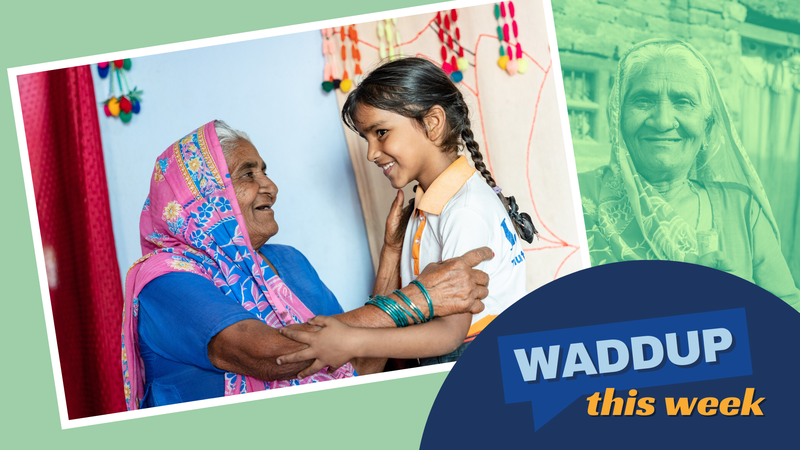'Poverty is not natural and can be overcome.’
Peter Waddup, CEO - The Leprosy Mission Great Britain
With the sun breaking through the grey skies and biting cold this week, I am staying positive as we cross the threshold into 2025.
2024 was a tough year globally. Escalating conflict and the devastating effects of climate change saw more people ending the year in poverty than at the start. In fact half of the global population now lives on less than US$6.40 a day.
It's too easy to feel utterly bewildered when hearing of the state of our troubled world. So it was a timely start to a New Year to be invited to the House of Commons on Monday evening. MPs and charity workers gathered together for an international development reception. I always try to be available for these events. It's good to hear our government's take on how we should tackle an escalating global crisis that simply cannot be ignored. It's also a chance to share knowledge with other charities working in the same countries as The Leprosy Mission. We are all working tirelessly to defeat poverty and heal lives. So any collaboration that serve to reach more people and make funds go further can only be a good thing.
Romilly Greenhill, Chief Executive of BOND, an umbrella organisation of development charities, welcomed Monday's guests. She reminded us it was 20 years since Nelson Mandela spoke in Trafalgar Square. He famously told the crowds gathered: "Like slavery and apartheid, poverty is not natural. It is manmade and it can be overcome and eradicated by the actions of human beings." Powerful, inspiring words that we must hold on to.
This government's development goal is equally inspirational. To create a world free from poverty on a liveable planet. But just how do we achieve this? Particularly with 'real' UK aid at a 17-year low with no sign of returning to its rightful 0.7% of GNI. We are also spending a huge chunk of our reduced aid budget on hosting refugees and asylum seekers here in the UK. So much so that charities estimate the amount that will spent on development needs overseas in 2025, will fall to around 0.36% of GNI. Don't get me wrong, we absolutely must treat asylum seekers well. Yet it cannot be at the expense of the world's poorest people. Taking money set aside to help people living in the world's poorest communities just isn't right.
Annaliese Dodds, Minister for International Development was an impressive speaker. She spoke knowledgably and passionately on Monday evening about overcoming global poverty. Yet the dwindling overseas aid budget wasn't mentioned. Instead she talked of lifting people from poverty through partnerships with governments and enterprise.
Unfortunately, there was no forum for questions. I would like to have asked why the government was not tapping into the resources offered by a room full of charity workers. In front of her she had access to the skills and connections to lift millions of the world's poorest people out of poverty in a highly cost-effective way.
The UK Aid Match scheme, of which The Leprosy Mission has been awarded funding three times, has transformed millions of lives. People living 38 of the world's poorest countries are living healthier and more prosperous lives as a result. Its legacy will live on through the generations.
While UK Aid Match still supports DEC appeals, it has not accepted new applications for some years now. Yet to bring the British public and the UK government together to change the lives of some of the world's poorest people is a golden opportunity. An opportunity for everyone's pound to be stretched to its very limit for the highest number of lives to be saved and transformed. An opportunity for partnership that was literally in front of Annaliese, right there and for the taking.

Through UK Aid Match, almost 2,000 people including great grandmother Dhanmati, pictured, were cured of leprosy in Nepal. The training the Heal Nepal project provided for government health workers and community volunteers, is helping to end this debilitating disease of poverty in Nepal. Photo: Robic Upadhyay